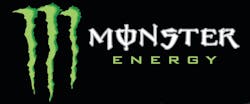All Lawsuits Dismissed Against Monster Energy Company Filed By Personal Injury Lawyers Morgan & Morgan
Source Monster Beverage Corporation
CORONA, Calif., July 28, 2016 /PRNewswire/ -- The law firm of Morgan & Morgan, which filed more than a dozen lawsuits against Monster Energy Company and Monster Beverage Corporation in February and March of 2016 claiming that drinking Monster Energy drinks caused a variety of ailments, has abandoned all lawsuits. The Florida-based personal injury law firm asked courts to dismiss the suits after filing.
Shortly after filing the lawsuits, Morgan & Morgan held a press conference which resulted in a number of media outlets broadcasting, posting or printing news stories about alleged claims of injury by Monster.
"The voluntary dismissal of these lawsuits, we believe, speaks volumes," said Marc P. Miles of Shook, Hardy & Bacon, counsel for Monster Energy Company. "We believe fairness dictates that the media now write about the dismissals."
Mr. Miles continued, "There is a lot of misinformation in the public about energy drinks. Once the substantial body of scientific evidence is reviewed, the safety of Monster Energy drinks becomes readily apparent.
"Recent scientific studies specifically conducted on Monster Energy drinks and published in peer-reviewed medical journals concluded there was no safety concern associated with the consumption of Monster Energy drinks. Over the past 14 years, more than 16 billion Monster Energy drinks have been sold and safely consumed worldwide," he said.
Governmental regulatory agencies in North America and Europe have found no health concerns associated with the consumption of energy drinks or their ingredients at the levels contained in them. A 16 oz. Monster Energy drink contains approximately 160 mg of caffeine from all sources – less than half the caffeine of a medium coffee sold in a coffee house.
The U.S. Food and Drug Administration concluded that for healthy adults a caffeine intake of up to 400 mg per day does not cause general toxicity or cardiovascular effects. As explained in a letter from the FDA to a U.S. Senator, the FDA has yet to identify any safety studies that call into question the safety of combinations of various ingredients added to energy drinks under intended conditions of use.
In Europe, where energy drinks have been studied for nearly two decades, the European Food Safety Authority ("EFSA," Europe'scounterpart to the U.S. FDA) concluded that a daily caffeine intake of up to 400 mg for adults is not associated with adverse health effects. EFSA also found that other common ingredients of energy drinks are unlikely to adversely interact with caffeine.
Similarly, Heath Canada concluded that in healthy adults a daily caffeine intake of up to 400 mg is not associated with adverse effects such as general toxicity or cardiovascular effects.





